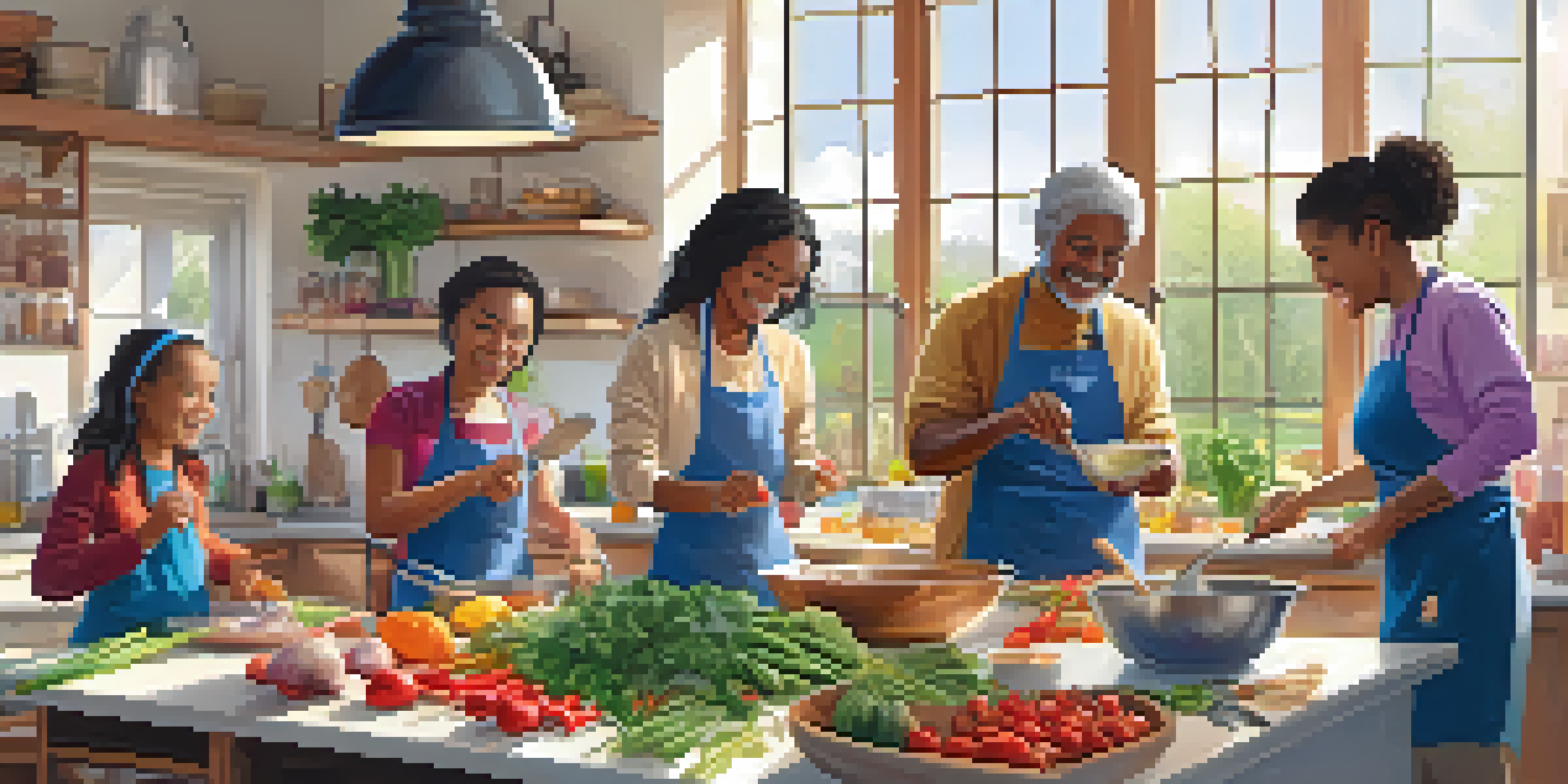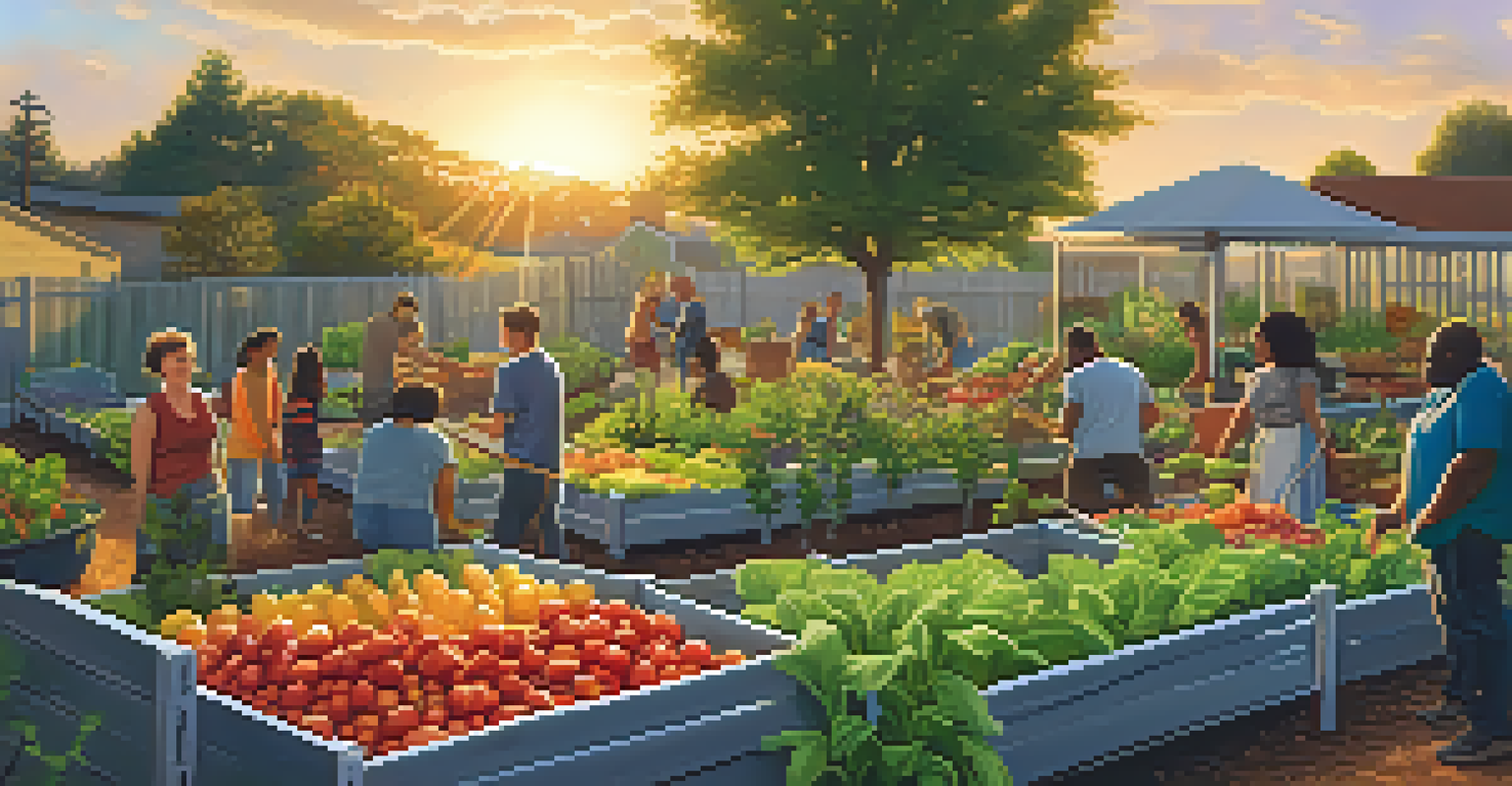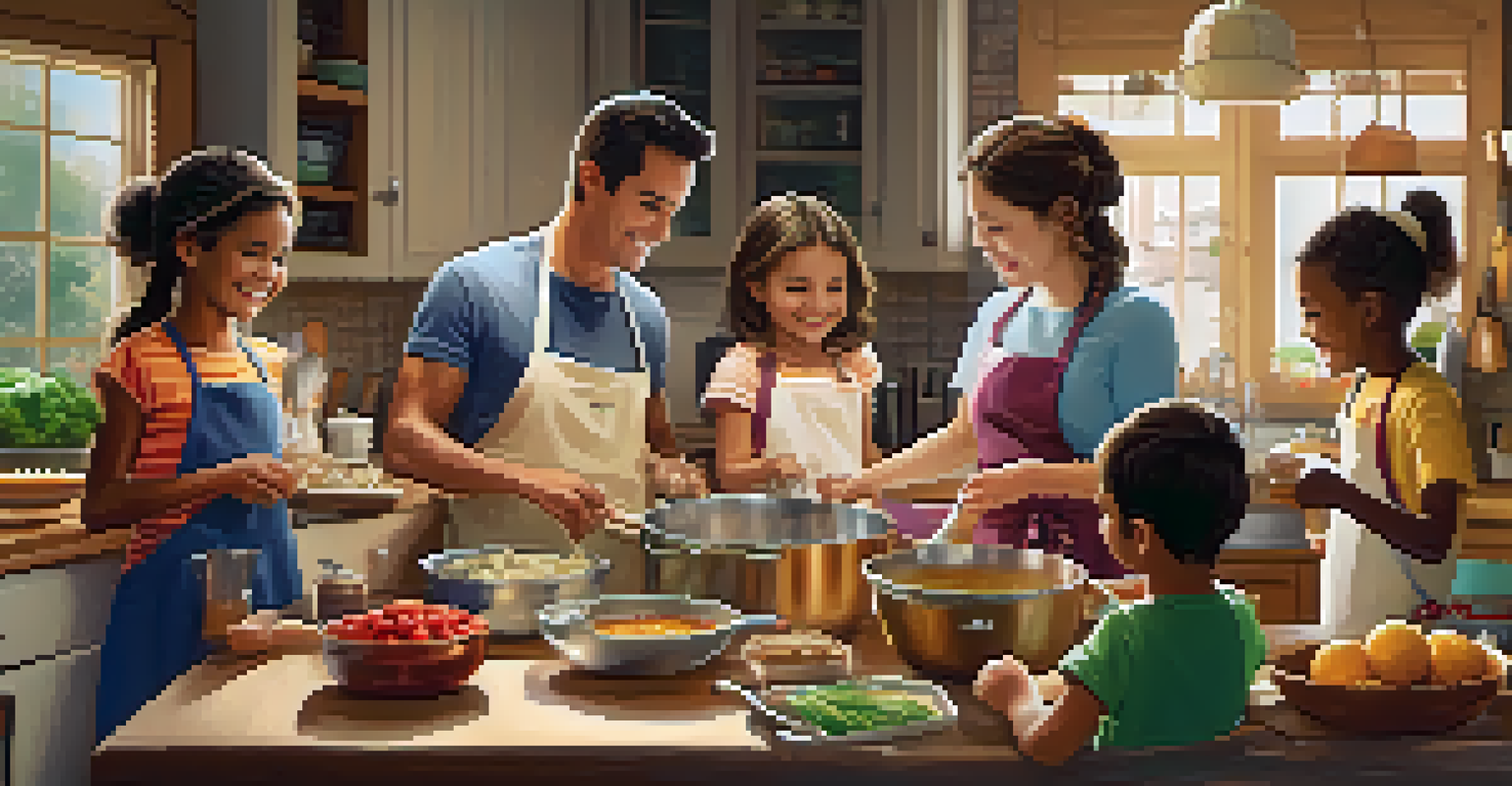The Role of Cooking in Community Health Initiatives

Cooking as a Catalyst for Community Connections
Cooking brings people together, serving as a platform for building relationships. In community health initiatives, shared meals can create bonds that transcend cultural and social barriers. When individuals gather to cook and eat, they share not just food but also stories, traditions, and experiences that promote understanding and unity.
Cooking is like love. It should be entered into with abandon or not at all.
Moreover, these gatherings can foster a sense of belonging, which is essential for mental health. When people feel connected to a community, they're more likely to engage in health-promoting behaviors. This connection can lead to improved emotional well-being and a support network that encourages healthy choices.
For instance, community cooking classes can be an excellent way for residents to meet and collaborate. Participants often leave not only with new cooking skills but also with friendships that enrich their lives, demonstrating how food acts as a bridge in community health initiatives.
Nutritional Education Through Cooking Workshops
Cooking workshops are an effective means of imparting nutritional education. By teaching community members how to prepare healthy meals, these initiatives empower individuals to make informed choices about their diets. Understanding what goes into their meals can motivate people to prioritize nutrition in their daily lives.

Additionally, cooking classes often focus on using local ingredients, which can promote sustainability and support local farmers. This connection to local food sources not only enhances the nutritional value of meals but also fosters a sense of pride in community resources.
Cooking Builds Community Bonds
Shared cooking experiences foster relationships and a sense of belonging, essential for mental health.
For example, a workshop that emphasizes seasonal fruits and vegetables can inspire participants to explore local markets. This not only enhances their cooking skills but also encourages a shift towards healthier eating patterns, impacting overall community health positively.
The Role of Cooking in Mental Well-Being
Cooking can be a therapeutic activity, offering a creative outlet that reduces stress. Engaging in the process of preparing meals allows individuals to focus their energy on a task, providing a break from daily worries. This mindful approach can enhance mental well-being and promote relaxation.
Food is a universal experience that brings people together, transcending cultural and social barriers.
In community health initiatives, incorporating cooking as a form of therapy can be particularly beneficial. Programs that include cooking as a way to cope with stress or trauma can create a safe space for individuals to express themselves. Sharing these experiences over a meal can further strengthen community bonds.
For instance, a community kitchen program that focuses on mental health might offer cooking sessions for individuals dealing with anxiety or depression. Participants not only learn to cook but also find solace in the shared experience, highlighting the profound impact of cooking on mental health.
Cooking as a Tool for Cultural Preservation
Cooking plays a vital role in preserving cultural heritage, especially within community health initiatives. Traditional recipes often carry historical significance, reflecting the values and customs of a community. By sharing these recipes, communities can maintain their identity while promoting healthy eating.
Cultural cooking events can serve as both an educational and celebratory platform. They allow participants to learn about the nutritional benefits of traditional dishes while fostering appreciation for cultural diversity. This, in turn, can lead to greater acceptance and understanding among community members.
Cooking Educates on Nutrition
Cooking workshops empower individuals to make informed dietary choices while supporting local food systems.
For example, a cultural food festival can showcase diverse cuisines, inviting community members to explore and appreciate different cooking styles. Such events not only celebrate heritage but also promote healthier food choices, demonstrating how cooking can bridge cultural gaps in community health efforts.
Building Food Security Through Community Cooking
Food security is a pressing issue in many communities, and cooking initiatives can help address this concern. By teaching individuals how to cook affordable, nutritious meals, communities can empower residents to take control of their food sources. This knowledge is crucial in combating food insecurity.
Community gardens and cooking classes can work hand-in-hand to provide fresh produce and cooking skills. Participants can learn to grow their own food and then use it in cooking sessions. This not only enhances food access but also reinforces the importance of nutrition and self-sufficiency.
For instance, a community cooking program that utilizes ingredients from a local garden can inspire residents to incorporate more fresh fruits and vegetables into their diets. This approach not only tackles food insecurity but also promotes healthier eating habits, fostering long-term community health benefits.
Encouraging Healthy Eating Habits Among Families
Cooking together as a family can significantly influence healthy eating habits in children. When kids participate in meal preparation, they are more likely to try new foods and develop a positive relationship with healthy eating. Community initiatives that focus on family cooking can create lasting impacts on dietary choices.
By promoting family cooking sessions, communities can instill lifelong habits that prioritize nutrition. Parents who cook with their children often teach them about portion sizes, food groups, and the importance of a balanced diet. This hands-on experience can be more impactful than classroom education alone.
Cooking Preserves Cultural Heritage
Cultural cooking events celebrate diversity and promote healthy eating by sharing traditional recipes.
For example, a family cooking night organized by a community center can teach families how to prepare nutritious meals together. Such initiatives not only enhance cooking skills but also strengthen family bonds, making healthy eating a shared family value.
The Future of Cooking in Community Health Initiatives
As communities continue to face health challenges, cooking initiatives will play an increasingly important role in promoting well-being. Emphasizing the link between cooking and health can drive more support for these programs. The future may see even more innovative approaches to integrating cooking into community health.
Digital platforms and social media can help spread awareness about the benefits of cooking, making it easier to reach broader audiences. Virtual cooking classes can connect people across distances, allowing communities to share knowledge and resources, regardless of location.

For instance, a community health initiative could launch an online cooking challenge, encouraging participants to share their healthy recipes and meals. This not only fosters community spirit but also highlights the essential role of cooking in enhancing health and well-being for all.